Vivian
A Physician's Hepatitis B Story
Place of Residence: Phoenix, Arizona
Vivian is a public health physician whose path to medicine was shaped early in life when she learned that she had been exposed to hepatitis B.
Her firsthand experience with hepatitis B inspired her to dedicate her career to the health and well-being of others and fueled a deep appreciation for the impact of the hepatitis B vaccine. Today, Vivian is passionate about advocating for hepatitis B awareness.
Vivian shares her unique perspective as both a patient and a physician.
How did you first discover that you had hepatitis B?
My parents immigrated to the United States in the mid 1960s, and I was born in Washington, D.C. When I was a child, I heard rumors in my family that my aunt’s husband was infected with hepatitis B. But, at the time, I did not understand the condition or anything about it. 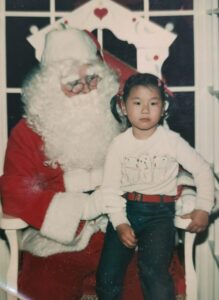
One of the things I started doing once I was of legal age was donating blood because I wanted to help other people. I still remember when the Red Cross visited my high school, and how excited I was to donate at the age of 16 for the first time. There was a real sense of pride in being able to contribute to a cause that helped people in need. From that moment on, I became a regular blood donor.
Fast forward to when I was 19 and a sophomore in college. I was taking an evolutionary biology course and remember feeling very fatigued for a couple of weeks and having difficulty staying awake during class, which wasn’t like me at all. I was living in my university’s dormitory and on weekends, my father would come pick me up to go home and I recall him telling me, “You look very yellow.”
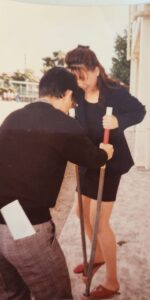 A few months later, our university had a blood drive, so I went to donate like I always had. Two weeks later, I received a letter from the blood bank informing me that I had been exposed to hepatitis B.
A few months later, our university had a blood drive, so I went to donate like I always had. Two weeks later, I received a letter from the blood bank informing me that I had been exposed to hepatitis B.
How did you feel after receiving your hepatitis B diagnosis?
I was pretty scared when all this happened and didn’t know who to turn to. I didn’t feel comfortable asking my parents, as I feared their reaction, so I went to our university’s health clinic. At that time, I didn’t know what hepatitis B was as I had barely taken any medical classes yet.
But, what I do remember from that time in my life, is how the nurse at our university’s health center treated me. She made me feel dirty and ashamed and she stigmatized me for being exposed to hepatitis B. She couldn’t explain very well to me what hepatitis B was or how I became exposed, or what my lab results meant. Those were a few dark months in my life, and I thought I had some kind of death sentence.
How did your illness progress?
I was fortunate to learn after a blood test six months from my initial diagnosis that I had cleared the acute hepatitis B infection. I also came to know that I was now considered naturally immune to hepatitis B, which was a big sigh of relief for me.
"I was pretty scared when all this happened and didn’t know who to turn to."
How has your experience with hepatitis B impacted your life?
Despite clearing the acute hepatitis B infection, and now becoming naturally immune, I can no longer donate blood ever again or participate in any clinical trials that requires the participant to never have been exposed to hepatitis B. As someone who has dedicated my life to servitude of others, this is one of the things that saddens and pains me.
Even with my natural immunity to hepatitis B, there is still a very small, but rare risk that I could see activation of hepatitis B in my body should I need to go on immunosuppressants for conditions such as cancer or some other immune disease. This has become a worry as I continue to age.
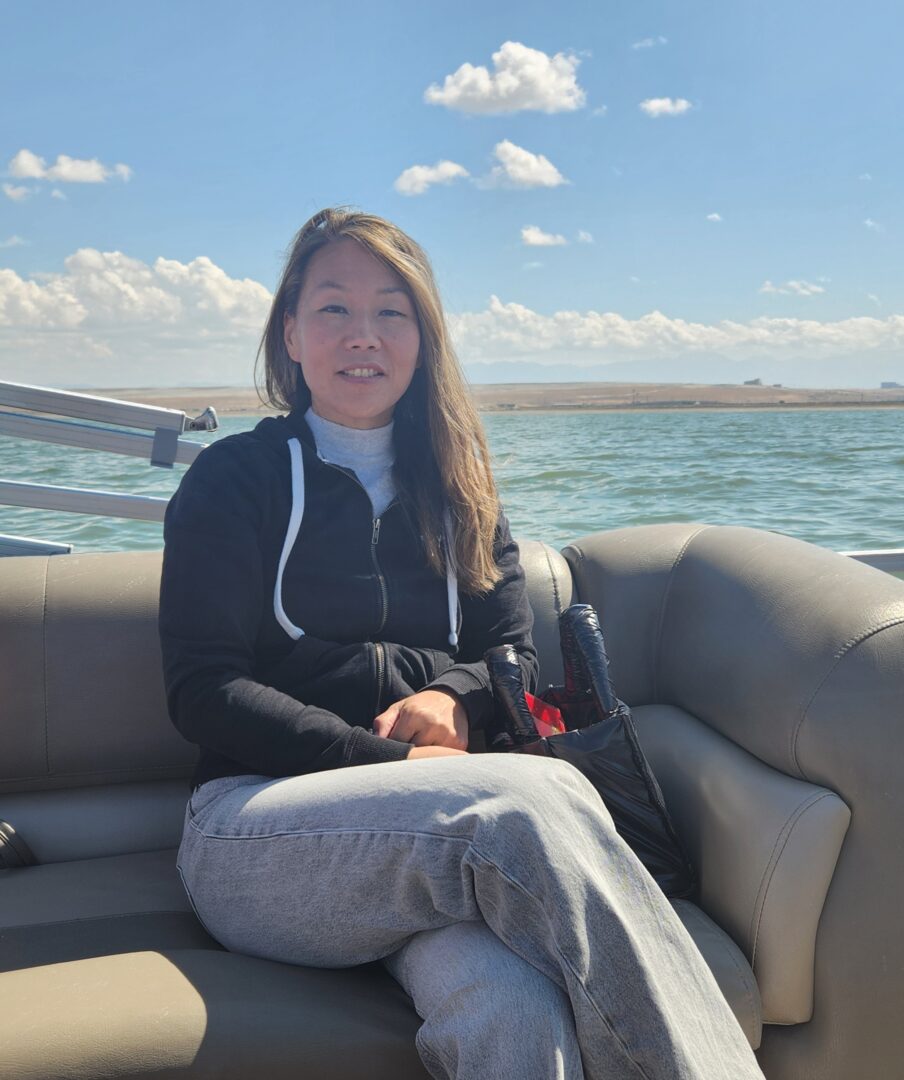
Getting vaccinated against Hepatitis B gives you peace of mind, knowing you're protected from this silent killer. It’s one less thing to worry about, helping you focus on living a healthy life without the fear of infection.
Were you vaccinated?
I was not vaccinated against hepatitis B and my exposure/infection could have been prevented.
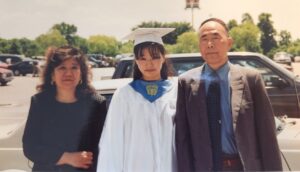
I was born to parents who immigrated from Taiwan, a country where there is a high risk for hepatitis B exposure. For this reason, I too was at higher risk, and yet my lack of immunization against hepatitis B was missed by all my healthcare providers from the time I was born until the age of 19 when I was diagnosed.
What do you want others to know about Hepatitis B that you didn’t learn until after your illness? What advice would you give to others?
Hepatitis B is a highly contagious virus—more so than HIV—and can survive on surfaces for up to seven days. Many people with the virus don’t experience symptoms, and about two-thirds of those with chronic hepatitis B are unaware of their infection. This lack of awareness significantly increases the risk of transmission, as individuals who unknowingly carry the virus can spread it to others. Because the infection often goes unnoticed until it’s too late, it is often referred to as a “silent killer,” as it can lead to severe health complications, including liver damage and even death.
The good news is that hepatitis B can be prevented through vaccination. Hepatitis B vaccines are both safe and highly effective, so please make sure you are up to date on your hepatitis B vaccinations.
What have you done to raise awareness about Hepatitis B?
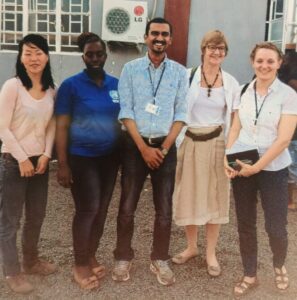 I have been a long-time advocate for hepatitis B and have dedicated much of my career to this cause. My passion for this work was a key reason I pursued a career in medicine. I’ve served as the Hepatitis B Director at the Charles B. Wang Community Health Center, a major federally-qualified health center (FQHC) in New York City, and was an elected member of the steering committee for the National Viral Hepatitis Roundtable. My contributions also include several scientific publications on hepatitis B, as well as recognition through community awards. Currently, I am organizing a hepatitis B health fair in collaboration with medical students from Arizona.
I have been a long-time advocate for hepatitis B and have dedicated much of my career to this cause. My passion for this work was a key reason I pursued a career in medicine. I’ve served as the Hepatitis B Director at the Charles B. Wang Community Health Center, a major federally-qualified health center (FQHC) in New York City, and was an elected member of the steering committee for the National Viral Hepatitis Roundtable. My contributions also include several scientific publications on hepatitis B, as well as recognition through community awards. Currently, I am organizing a hepatitis B health fair in collaboration with medical students from Arizona.
Is there anything else that you would like to share about your experience?
While I wish I hadn’t ever been infected with hepatitis B, one of the positive things that comes out of this for me is that it has made me a better doctor and advocate for my patients and community. I am someone that has experienced the stigma associated with hepatitis B infection, and that event galvanized me to pursue a career in medicine with a goal of preventing anyone else from experiencing what I did.
BECOME A VACCINE ADVOCATE
There are lots of ways you can make a difference in your community.

